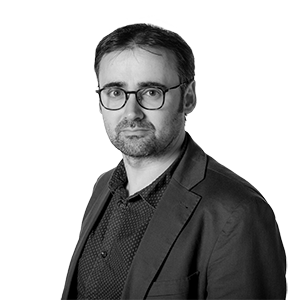The other football club that Aitana Bonmatí loves
The AE Ramassà, in the Franqueses del Vallès area, celebrates 50 years with a commitment to welcoming refugee women fleeing violence.


BarcelonaHalf a century of life, believing that a different kind of football is possible. AE Ramassà has celebrated its 50th anniversary by opening its doors to those in need, just as the club from Les Franqueses del Vallès often does. A different, special club, because it has federated teams, but in 2014 it decided to take a step forward by establishing itself as an NGO. Since then, it has become a home and a space of safety for many people, especially refugee women. When Ramassà plays, its players can forget the problems they face for a while. Some girls come from countries where stones were thrown at them if they wanted to play sports. One of this year's players is fleeing a forced marriage in Pakistan and knew nothing about football. Now it gives her a life.
In 2021, Ramassà started an inclusive women's football project for refugees that works with more than 35 women. A team that has a very special sponsor, Aitana Bonmatí. "I came to the Ramassà Association through UNHCR because they work a lot with women who come from war-torn countries and are forced to leave, even if they don't want to. They are refugee women who use sport as a unifying force. It's not easy to flee your home and come into this world. I've shared training sessions with them, and they've come to my field. They help me find a better way to live," said the player a few weeks ago at the launch of the book of charity stories about sports, which this year will donate all the proceeds to AE Ramassà.
When Bonmatí first went to see them, some didn't know who she was. Others already admired her. It doesn't matter if they play well or poorly, the idea is for them to feel comfortable. That they help each other in their weekly training sessions and in a monthly match. Stories like that of a Russian girl fleeing homophobia against lesbians mingle with those of women who suffered violence in Honduras. "We're a very small and modest club. We don't stand out for our sporting results; we're in the fourth division of the Catalan league, which is the lowest division in Catalonia. In 2014, however, we launched the more charitable side of the club by traveling to different countries in search of NGOs working there. And since then, we've helped some of them. Cameroon, where we have a soccer school and a training center for children in a neighborhood of Yaoundé," explained Marc Larripa, head of the social area. And then came the inclusive women's soccer project aimed at newly arrived girls, refugees, and asylum seekers. The coach is a social worker who speaks with the players throughout the week and makes sure they lack nothing.
To celebrate its 50th anniversary, AE Ramassà invited the Sahrawi Sports Federation and the Western Sahara national team, with the aim of strengthening the ties of cooperation and solidarity with these organizations. After talks and meetings, friendlies were played between the Ramassà men's and women's teams and the Sahrawi National Team. "We are very grateful for all the acts of help for our people. We have been refugees for fifty years and we are forgotten. We are in a very difficult situation, as we don't know if our families will be able to have dinner tonight. We have a duty and a moral obligation to continue the fight, and sport is a good weapon to fight back," said Ali Ah.
Also this year, the Ramassà futsal team made a trip to Mongolia to collaborate with the NGO Lantuun Dohio, which creates safe spaces throughout the country that aim to respond to the problems facing Mongolia regarding child trafficking, abuse, and violence. The players visited two of the NGO's centers in the outskirts of the capital, Ulaanbaatar, to play soccer and distribute equipment. This was a way to continue demonstrating that a different kind of football is possible.
